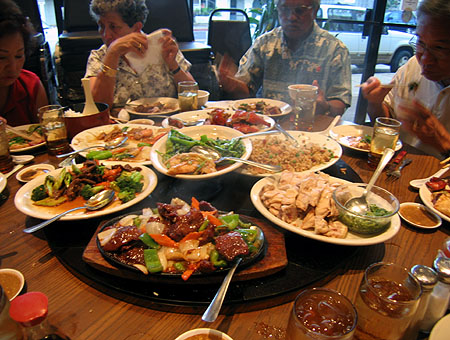Many post-secondary degree programs in commerce, management, and business incorporate dining etiquette training and other related seminars into their course requirements. Ranging anywhere from one afternoon session to a full course lasting several weeks, any introduction to business etiquette skills can set up young professionals for success.
The only problem is, many etiquette programs seemed to be confined only to management or commerce programs. Other departments and faculties often do not acknowledge their students’ need for business etiquette training. Yet business etiquette provides countless strategies and techniques for professionals in any field – especially while dining for business, when much of the protocol is not intuitive, but instead consists of learned conventions.
In addition, nearly any professional could find him or herself taking part in a business meal. Whether it includes an interview over a meal, dinner with an honoured guest, a business deal or client relationship forged over lunch, or networking during a cocktail party – any of these situations requires a set of business dining skills.
Here are several common mistakes that occur during business meals – and solutions that business dining etiquette can provide.
- Uncertainty around place setting; use of wrong bread plate and water glass.
When we are in unfamiliar or uncertain situations, we can feel out of control and lose our confidence. This can certainly happen during a business meal, when diners unfamiliar with the setting can get so caught up in the details that they forget to focus on the business at hand. Simple knowledge of using the bread plate to the left and the water glass to the right can allow a diner to shift his or her attention to the important issues and not worry too much about the small details of the meal.
- Conversations that are too controversial or too personal.
There are certain topics of conversation that should never be broached during a business meal, such as deeply personal questions or controversial issues. Business meals are about forging relationships, not inciting debate. Yet it is equally important to have a pulse on the conversation and know when – or when not – to talk business, as some prefer to discuss deals only after a meal. Dining etiquette can teach professionals to be sensitive and aware of the course of conversation during a meal.
- Drinking alcohol during a business meal.
Ordering alcohol can be a major faux pas during a business meal. Diners, especially junior staff, should not order alcohol unless the host does and invites others to do so as well. If alcohol is part of the meal, it is best to stick to one glass for the evening. Especially for those new to business dining, etiquette training can clarify any awkwardness or uncertainty about ordering alcohol during a business meal.
- Networking cocktail parties are about building relationships, not about food and drink.
At networking events, cocktails and small plates are often an added benefit to an evening function. Yet the focus of the event is not the food, but rather to build connections with others and make great first impressions. Business dining etiquette training can help to make this important distinction, as well as provide solutions for focusing on the networking element of the event – such as having a snack before attending or planning a dinner in advance of the event.
We have conducted business etiquette seminars at over a dozen colleges and universities across Canada and we are committed to the success of emerging young professionals.





